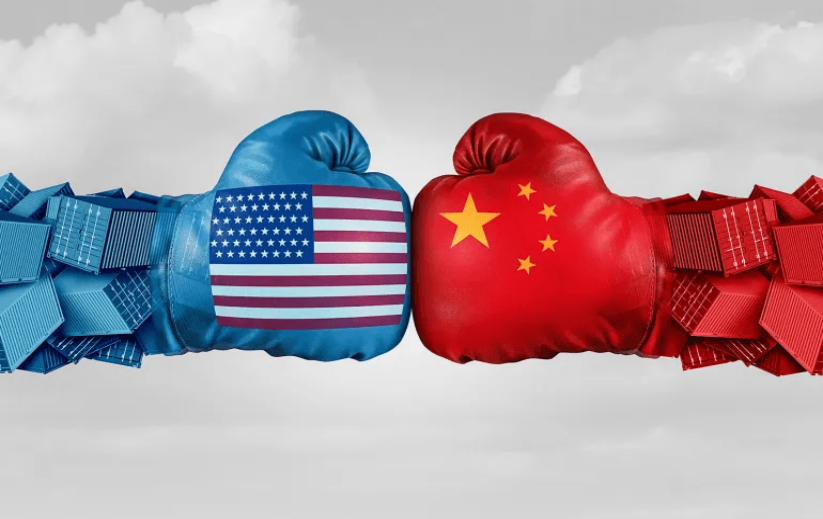
The Biden administration is planning to launch a tariff crackdown on China's electric car industry, a person familiar with the matter told Bloomberg. The move, which reflects US concerns about China's rapid rise in the electric car sector, has attracted widespread international attention.Not only is electric vehicles an important development direction of the global automobile industry, but also because the competition and cooperation between China and the United States in this field is getting increasing attention.
With the transformation of the global energy structure and the improvement of environmental awareness, the electric vehicle market has shown explosive growth. China has shown strong innovation capacity and market competitiveness in this emerging field, which has attracted the attention of a large number of domestic and foreign investors.Many people in the industry believe that China's integration ability in the upstream and downstream of the electric vehicle industry chain, the leading position in battery technology and the huge market scale occupy a favorable position in the global competition.
It is understood that the background of the Biden administration's move is complex. In February, Biden issued a statement saying that he would take unprecedented action to prevent Chinese connected cars and trucks, including electric cars, from entering the U. S. market.Since then, auto industry officials have said the government is considering raising tariffs on China's electric vehicles. President Joe Biden is expected to quadruple tariffs on electric vehicles from China from about 25 percent to 100 percent and raise tariffs in other key semiconductors, solar and battery sectors, in a statement Tuesday, according to people familiar with the matter.This series of actions show that the US has taken a relatively tough attitude towards China in its economic and trade policy.
First, we need to make it clear that tariffs are a trade policy tool and their use needs to be considered with caution. In the current context of global economic integration, the upgrading of tariffs not only affects the interests of both trade sides, but also may have a profound impact on the global industrial chain, supply chain and value chain.In this context, the Biden administration may believe that China's electric vehicle industry is a threat to the U. S. industry, so it hopes to seek more living space and development opportunities for the country by raising tariffs.However, it should be pointed out that the rapid development of China's electric vehicle industry is an important part of the transformation and upgrading of the global automobile industry. In recent years, the Chinese government has vigorously supported the new energy vehicle industry,Through policy guidance, technological innovation and market cultivation, we will promote the rapid rise of the electric vehicle industry.
In addition, the international layout of China's electric vehicle industry is also becoming increasingly obvious. Many Chinese companies are actively exploring overseas markets and working with partners around the world to promote the globalization of the electric vehicle industry.Therefore, launching tariff strikes on Chinese electric vehicles may not only harm the interests of Chinese companies, but also may hinder the cooperation and exchanges in the global electric vehicle industry.
However, we need to recognize that tariffs are not the fundamental solution to the problem. For emerging industries such as electric vehicles, international cooperation and market competition go hand in hand. Only through open cooperation and mutual benefit can the industry be sustained.
For the United States, although raising tariffs may bring some protection for its own industries in the short term, in the long term, this approach may undermine the global trade order and the stability of industrial and supply chains.At the same time, raising tariffs will also increase the cost of buying cars for American consumers, affecting the popularity and promotion of electric vehicles. In addition, excessive protection of domestic industries may inhibit technological innovation and market competition, which is not conducive to the sustainable development and progress of global industries.
The Chinese government and companies also need to respond to the actions the Biden administration can take. On the one hand, we should strengthen the ability of independent innovation and technology research and development to improve the core competitiveness of electric vehicles.On the other hand, we should actively expand the international market, strengthen the cooperation and exchanges with global partners, and jointly promote the global development of the electric vehicle industry.
To sum up, it is not wise to launch tariffs on Chinese electric vehicles. On the contrary, China and the United States should strengthen cooperation and exchanges in the field of electric vehicles, and jointly promote the global automobile industry to a greener, only and sustainable direction.By strengthening cooperation in technology research and development, market expansion and industrial chain integration, the two sides can achieve mutual benefit and win-win results and create a better future for global consumers.

報告顯示,中國電力投資加速增長,預計2024年電網基建投資將超過5300億元。
近日,市場迎來了一則引人注目的消息:工業巨頭3M公司(MMM.N)在本周五公布了其季度業績報告,隨後股價飆升至近兩年來的
最近,外媒給OpenAI算了筆賬,今年可能要血虧50億美元。
近日,巴黎奧運會和世界鐵人三項協會聯合發布了一項重大決定,宣布因塞納河水質污染問題,原定於近期進行的奧運會鐵人三項首次下
當地時間7月18日,法國巴黎發生了一起令人震驚的持刀襲警事件。
近期,一則重大消息在國際舞臺上引起軒然大波,馬來西亞宣布加入金磚國家。
調查發現,互聯網和智能手機的使用幹擾了韓國近五分之一學生的生活。